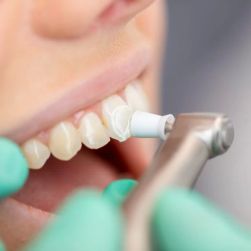Is Teething Painful for Infants, and What Can Be Done to Ease Discomfort?
Introduction:
Welcoming a new life into this world comes with its own set of challenges and joys. One of these milestones, teething, can be a source of concern for many new parents. In the United States, teething is a common phase in an infant's development that raises frequent questions among caregivers. Understanding whether teething is genuinely painful and exploring methods to alleviate this discomfort are essential for ensuring the well-being of infants during this critical period of growth. This article will delve into these concerns, providing insights and solutions specifically tailored for American families navigating this significant stage in their children's lives.
Understanding the Teething Process:
Teething refers to the period when a baby's first teeth emerge through the gums, usually starting around six months of age. However, this timeline can vary, with some infants beginning as early as three months and others as late as a year. During teething, an infant's gums may become swollen and tender, triggering symptoms such as irritability, drooling, and a slight increase in temperature. While the teething process itself is a normal developmental stage, the accompanying discomfort can be a source of distress for both the child and their caregivers.
Is Teething Painful for Infants?
Contrary to popular belief, not all infants experience teething in the same way. While some children display minimal discomfort, others may find the sensation considerably painful. Scientific studies suggest that teething discomfort can often be overstated. The pain associated with teething may indeed be mild, similar to the feeling of pressure rather than acute pain. Yet, for some infants, the experience can be more distressing, affecting sleep and feeding patterns. Parents often interpret the signs differently, which can influence how they perceive and address their child's discomfort.
Strategies to Ease Teething Discomfort:
Fortunately, there are numerous methods to help soothe teething infants. Some of these approaches include:
- Cold Compresses: Using chilled teething rings or a clean, cold washcloth can provide relief by numbing sore gums. It’s important to ensure that these objects are safe for chewing and are free of any liquid that could pose a choking hazard.
- Teething Toys: Rubber or silicone-based teething toys can massage the gums and offer a safe distraction for little ones. Make sure these toys are free from harmful chemicals like BPA.
- Over-the-Counter Remedies: In some cases, pediatricians may recommend using certain medications, such as acetaminophen or ibuprofen, to alleviate pain. Always follow a healthcare provider's guidance when administering any medication to a child.
The Role of Good Oral Hygiene:
Establishing good oral hygiene habits play a crucial role in managing teething effectively. While it might seem early, wiping down the baby's gums with a damp gauze pad can keep the mouth clean and free of potential irritants. As teeth begin to appear, using an infant toothbrush can help establish a routine. Regular oral examinations with a pediatric dentist, such as those found at Dentistry Toothtruth, can provide professional support and advice to ensure healthy teething practices.
Consulting a Pediatrician:
If teething symptoms seem extreme or are causing significant pain, contacting a pediatrician is advisable. Conditions like fever above 100.4°F or severe diarrhea should be assessed promptly, as they are not typical teething symptoms.
Conclusion:
Navigating through teething can be challenging, but it is a temporary phase that all infants eventually overcome. By understanding the nature of teething and employing effective strategies to alleviate discomfort, parents can make this stage more manageable. Regularly consulting with healthcare professionals and maintaining good oral hygiene are key steps in helping your baby sail through teething with minimal stress. Remember, while challenging, teething is also a positive sign that your child is growing and developing healthily.






